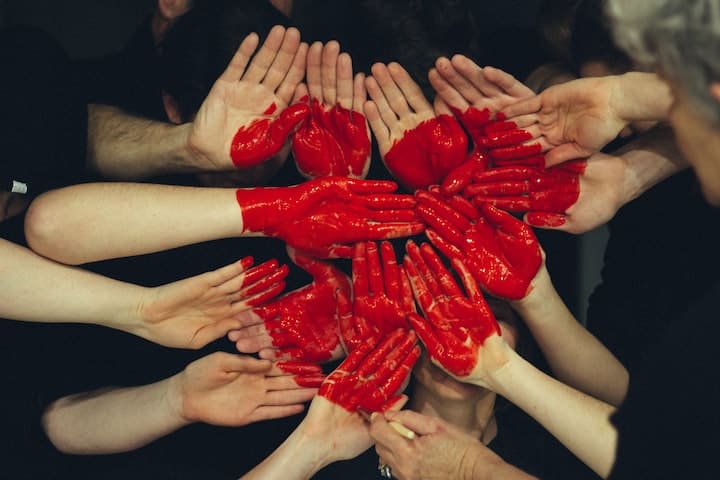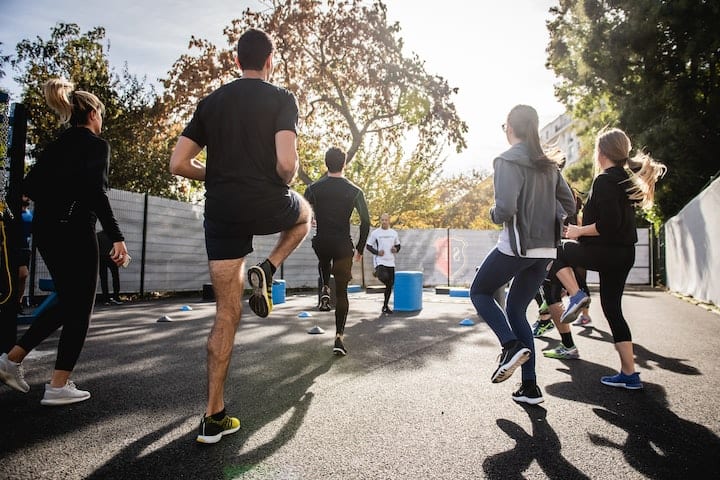Breaking the Cycle: Tips for Overcoming Addictive Habits
Help yourself and start working on yourself from today.

Addictive habits can be hard to break, but they don't have to define who you are. It's possible to take back control of your life and free yourself from the grip of addiction. In this blog post, I'll explore practical tips for overcoming addictive habits. From seeking professional help to developing healthier coping strategies, we'll discuss the steps necessary for breaking the cycle of addiction and reclaiming your life.
Everything I learned about how to break addictive habits, I learned from a book called Stop Addictive Habits. You can buy it here.
- Understand Your Triggers
Addictive habits are often driven by underlying emotional and psychological triggers. It’s important to understand what triggers these behaviors so you can work to avoid or manage them. Ask yourself what emotions or situations make you feel the need to engage in your addictive behavior. Do you turn to a substance when you’re stressed or anxious? Do you binge on unhealthy food when you’re feeling down?
Once you’ve identified your triggers, you can take steps to avoid them. If stress is a trigger, find healthy ways to manage stress like exercise, meditation, or therapy. If certain people or situations make you more likely to engage in addictive behaviors, try to limit your exposure to those triggers or seek support from a therapist or support group.
By understanding your triggers, you can take control of your behavior and break the cycle of addiction. Remember, it’s okay to ask for help along the way. There are many resources available to help you overcome addictive habits and build a healthier, happier life.

- Avoid Temptation
One of the most important steps in overcoming addictive habits is avoiding temptation. This means identifying situations, people, and places that trigger your addictive behavior and making a conscious effort to avoid them.
For example, if you are trying to quit smoking, it may be helpful to avoid social situations where people smoke or places that sell cigarettes. If you are struggling with alcohol addiction, you may need to avoid bars or parties where alcohol is present.
Avoiding temptation also means removing any reminders or triggers that could lead to relapse. This could mean getting rid of any drug paraphernalia in your home or deleting phone numbers of drug dealers or other enablers.
Another important step in avoiding temptation is to establish new, healthier habits. Instead of spending your time and money on addictive behaviors, find new hobbies or activities that you enjoy. This could include exercising, reading, volunteering, or spending time with friends and family.
It's important to remember that avoiding temptation is not a one-time event, but a continuous process. It may take time to identify your triggers and establish new habits, but with persistence and dedication, it is possible to overcome addictive behaviors.
- Find a Support Group
Addictive bits can be incredibly challenging to break. It's not uncommon to feel like you're all alone in your struggles, but the truth is that there are countless others going through similar experiences. Joining a support group can be an incredibly powerful tool for overcoming addiction.
The book I recommend everyone to read is Stop Addictive Habits. You can find it here.
The benefits of joining a support group are vast. Firstly, you'll be able to connect with others who are also in recovery and can relate to your struggles. This sense of community can be incredibly comforting and reassuring. You'll no longer feel like you're the only one fighting this battle.
Secondly, being part of a support group can provide you with a sense of accountability. When you're surrounded by people who are committed to recovery, it's much easier to stay motivated and on track. This added sense of responsibility can make all the difference in staying on the path towards sobriety.

There are many different types of support groups to choose from. Alcoholics Anonymous (AA) and Narcotics Anonymous (NA) are two of the most well-known, there are also various Facebook groups and support groups specifically for family members of addicts. It's important to find a group that you feel comfortable with and that aligns with your beliefs and values.
Attending meetings regularly and participating in group activities can help you build strong bonds with other members and gain invaluable insights into managing addiction. It can be a bit intimidating to join a support group at first, but remember that everyone in the group is there for the same reason – to support each other and overcome addiction.
- Seek Professional Help
Addictive habits can be challenging to break on your own. While some people can stop their bad habits without assistance, it is perfectly normal to seek professional help. Seeking the right kind of help will provide you with the tools and resources you need to break the cycle of addiction.
The book that helped me overcome my addiction is called Stop Addictive Habits if you want to check it you can click here.
There are many types of professional help available for addiction. One option is to see a therapist or counselor who specializes in addiction treatment. These professionals can help you understand the root causes of your addiction, develop coping mechanisms to resist temptation, and create a plan for recovery.
Another option is to attend addiction recovery groups like Alcoholics Anonymous (AA) or Narcotics Anonymous (NA). These groups offer support and guidance from people who are going through the same struggles as you. They can provide a sense of community and accountability that can help you stay on track.
In some cases, medication may also be used to treat addiction. Certain medications can help reduce cravings or ease withdrawal symptoms. If you are considering medication, talk to your doctor or a specialist in addiction medicine.
Remember that seeking professional help is a sign of strength, not weakness. Asking for help is the first step towards recovery and a healthier life. If you feel like you cannot overcome your addiction on your own, there are people and resources available to help you.
- Create a Healthy Lifestyle
One of the most important steps in overcoming addictive habits is creating a healthy lifestyle. This involves taking care of your physical, mental, and emotional well-being. Here are some tips on how to create a healthy lifestyle that can help you break the cycle of addiction:
1. Exercise regularly: Exercise is not only good for your physical health but also your mental health. It can help reduce stress, anxiety, and depression. Find an exercise routine that works for you, whether it's jogging, swimming, or yoga, and stick to it.

2. Eat a healthy diet: A healthy diet is essential for a healthy lifestyle. Avoid processed foods and sugary drinks and focus on whole, nutrient-rich foods like fruits, vegetables, lean proteins, and whole grains.
3. Get enough sleep: Sleep is essential for overall health and well-being. Make sure you get enough sleep each night and establish a consistent sleep schedule.
4. Practice self-care: Taking care of yourself is essential for a healthy lifestyle. This can include things like meditation, journaling, or taking a relaxing bath. Find activities that help you feel calm and centered and make time for them each day.
5. Cultivate healthy relationships: Having a support system is crucial for overcoming addiction. Surround yourself with positive people who support your recovery and encourage you to make healthy choices.
Creating a healthy lifestyle can be challenging, especially when you're trying to break free from addictive habits. However, with persistence and commitment, it's possible to create a life that's fulfilling, balanced, and free from addiction. Remember, recovery is a journey, not a destination, so be patient and kind to yourself as you work towards a healthier life.
The book that helped me overcome my addiction is called Stop Addictive Habits if you want to check it you can click here.
About the Creator
Marija Pavlovic
Hello everyone, I'm Maria and the main reason why I started writing blogs is to help people. For the same reason, I would like to enter the faculty of philosophy and study psychology.





Comments
There are no comments for this story
Be the first to respond and start the conversation.